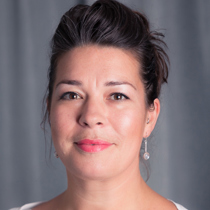In September, we started a fascinating research project, commissioned by Ofsted.
The aim of the project is:
- to help Ofsted explore how ‘vulnerability’ is currently understood in education (from early years through to further education) and social care (including early/family help).
- to explore how Ofsted can better understand vulnerability and its complexity, in order to evaluate inclusive practice when inspecting or regulating in both the education and social care sectors.
The project involves a rapid review of relevant literature, stakeholder engagement with professionals across the education and social care sectors, and consultation with children, young people, parents/carers, and with Ofsted. With the first round of focus groups complete, we’re pleased to be able to share some emerging insights.
Within inspection and regulation, as with much of the policy literature, vulnerability as a concept is not used to identify children and learners. Rather, groups of children and learners are categorised as vulnerable. Then these lists are used to determine what ‘vulnerability’ means. There can be a tendency to assume that only those categorised as ‘vulnerable’ need particular attention.
The use of categories in this way can overlook the broader systemic factors that can contribute to vulnerability. This means that some children who need attention are missed.
This isn’t to say that pre-defined categories (such as eligibility for pupil premium or SEND status) should be disregarded – quite the opposite. A broader conceptualisation of vulnerability – one that considers circumstances that are encapsulated by pre-existing categories as well as other factors (for instance, young carers; families experiencing unstable housing) - would mean fewer children and learners are left unseen and unsupported.
Participants from various sectors in the focus groups broadly supported a definition of vulnerability which stated that it should not be seen exclusively as a fixed trait. They also noted that vulnerability is not only a matter of personal or family circumstances (important as these are), and often arises from factors such as structural inequities that result from social and institutional influences.
Bioecological perspectives can inform the definition of vulnerability. They consider several levels of interaction between an individual and their environment over time. A 'social model of vulnerability' provides another perspective to the bioecological model. The social model of disability, for example, focuses on how society disables people. It argues that the emphasis must be on changing society and removing barriers to inclusion. These views help us to shift our understanding of vulnerability as an ‘innate’ trait to an understanding of vulnerability as a state that arises from unmet needs.
We propose that a combined ‘social’ and ‘bioecological’ conceptualisation of vulnerability would better capture children and learners’ experiences and the efforts of education and social care professionals.
This theoretical definition is being further refined through the next round of consultation:
Vulnerability is a multi-dimensional and dynamic construct; it is about a person’s susceptibility to negative outcomes and experiences, and is driven by complex social, economic, interpersonal and individual factors.
To put it another, more accessible, way:
Vulnerability is not exclusively a trait – it is a state we can move in and out of, that affects everyone in different ways. Importantly, it’s about what is within us and what is around us.
In the second round of stakeholder engagement, we have been exploring how this kind of definition can translate into practice and inspection/regulation activity, including what metrics, measures and support might be needed.
We have been considering how to ensure this approach to understanding vulnerability does not simply translate into additional burden; it is a chance to recognise each setting or service’s role in what they can do to address vulnerability.

